-
 Thanh toán đa dạng, linh hoạtChuyển khoản ngân hàng, thanh toán tại nhà...
Thanh toán đa dạng, linh hoạtChuyển khoản ngân hàng, thanh toán tại nhà... -
 Miễn Phí vận chuyển 53 tỉnh thànhMiễn phí vận chuyển đối với đơn hàng trên 1 triệu
Miễn Phí vận chuyển 53 tỉnh thànhMiễn phí vận chuyển đối với đơn hàng trên 1 triệu -
 Yên Tâm mua sắmHoàn tiền trong vòng 7 ngày...
Yên Tâm mua sắmHoàn tiền trong vòng 7 ngày...
Anticancer Living: Transform Your Life and Health with the Mix of Six
-

- Mã sản phẩm: 0735220433
- (322 nhận xét)

- Publisher:Penguin Books; Reprint edition (May 7, 2019)
- Language:English
- Paperback:432 pages
- ISBN-10:0735220433
- ISBN-13:978-0735220430
- Item Weight:12.8 ounces
- Dimensions:5.5 x 0.9 x 8.3 inches
- Best Sellers Rank:#109,650 in Books (See Top 100 in Books) #20 in Nutrition for Cancer Prevention #66 in Oncology (Books) #379 in Healing
- Customer Reviews:4.6 out of 5 stars 322Reviews
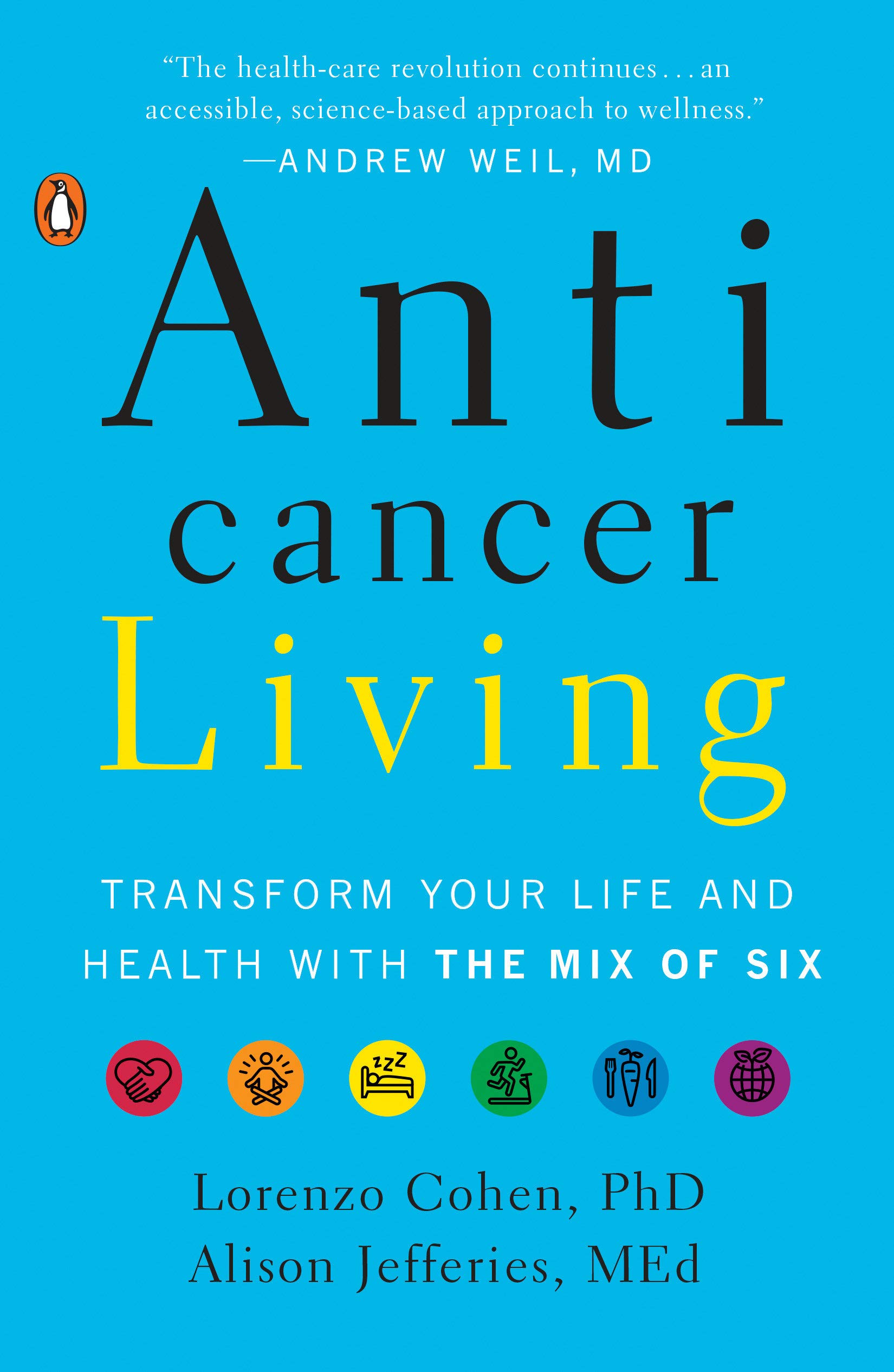
Mô tả sản phẩm
Product Description
“The health-care revolution continues . . . an accessible, science-based approach to wellness.” —Andrew Weil, MD
What if we could make basic, sustainable lifestyle changes that could prevent us from getting cancer?
What if those with cancer could improve their chances of living long, vibrant lives?
The evidence is now clear: at least 50 percent of cancer deaths can be prevented by making healthy lifestyle changes. But many—patients and doctors included—still don't realize the simple changes we can make to increase chances of survival, or aid in the healing process for those with a diagnosis. Introducing the concept of the "Mix of Six," Lorenzo Cohen and Alison Jefferies make an informed case that by focusing on six key areas of health and wellness, you can support treatment or reduce your risk for developing cancer altogether.
An accessible, prescriptive guide to wellness based on the latest scientific findings, Anticancer Living outlines a path to radically transform health, delay or prevent many cancers, support conventional treatments, and significantly improve quality of life.
“Anticancer Living will empower millions of people with information they can use to reduce their risk of getting cancer and improve their chances of surviving a cancer diagnosis. Highly recommended!” —Dean Ornish, MD, author of The Spectrum
Review
Praise for Anticancer Living
“The health care revolution continues with a great new book . . . a valuable resource that presents an accessible, science-based approach to wellness.”
—Andrew Weil, MD
“An invaluable guide for both professionals in the health field and the general public . . . written by authors with impeccable credentials.”
—Deepak Chopra, MD
“Anticancer Living will empower millions of people with information they can use to reduce their risk of getting cancer and improve their chances of surviving a cancer diagnosis. Highly recommended!”
—Dean Ornish, MD, author of The Spectrum
“Anticancer Living . . . blends expert insight, practical experience, deep compassion, and clear writing to produce a formula that can change lives—and save them. This is an important, empowering book.”
—David L. Katz, MD, author of Disease-Proof
“Anticancer Living is an excellent resource that outlines the types of health behaviors that can reduce cancer risk and also improve the quality of life of those undergoing cancer therapy.”
—David S. Rosenthal, MD, former president of the American Cancer Society
“It should be required reading—not only for laypeople, but for physicians too.”
—Neal D. Barnard, MD, author of Dr. Neal Barnard’s Program for Reversing Diabetes
“Adults and children, men and women can benefit by applying the sound advice and easy to follow guidelines presented by Cohen and Jefferies.”
—Margaret I. Cuomo, MD, author of A World Without Cancer
“Anticancer Living presents scientific evidence that changing the way we live can reduce deaths from cancer and other major diseases. It shows us how to go about altering our lifestyles in order to achieve this goal and feel better every day. This much needed book provides a prescription for better health, from experienced professionals who want passionately to help you improve your life.”
—John Mendelsohn, MD, former president of the MD Anderson Cancer Center
“Lorenzo Cohen and Alison Jefferies are picking up the mantle from the late David Servan-Schreiber, and not a moment too soon! This book promises to be an important guide to reducing the risk of recurrence of cancer and the risk of getting it in the first place.”
—Susan M. Love, MD, MBA, author of Dr. Susan Love’s Breast Book
“The cheapest, most effective form of health care is not getting sick in the first place. For cancer patients and anyone seeking to avoid a future cancer diagnosis, this book will be a bible providing a practical, achievable path toward an anticancer lifestyle.”
—Gary Hirshberg, chairman and cofounder of Stonyfield Farm
“I thoroughly believe in the Cohen/Jefferies approach to prevention and healing and I think this is an important book for all people to read.”
—Yogrishi Swami Ramdev
“My brother’s book, Anticancer, has already helped millions of patients around the world. Anticancer Living discusses the latest research, shares inspirational stories, and gives us practical advice. This is an indispensable book for all of us.”
—Franklin Servan-Schreiber
“It is not hyperbole to state that there is a desperate need for this book. An astonishing number of Americans will be diagnosed with cancer during their lifetimes. Dollars spent on cancer research are devoted primarily to treatment and cure—or, to use an image from this book, “mopping up” once a cancer diagnosis has been made. Anticancer Living provides a concrete, evidence-based guide to ‘turning off the tap’—lowering inflammation in order to prevent cancer in the first place.”
—Meg Cadoux Hirshberg, founder of the Anticancer Lifestyle Foundation
“Anticancer Living provides an accessible, prescriptive guide to wellness based on the latest scientific findings and clinical trials, and it showcases the community of doctors, researchers, caregivers, and patients who have been inspired to create change.”
—Edge Magazine
“A must read for those caring for cancer patients as well as patients themselves who will find it informative and inspirational.”
—Houston Medical Journal
“[Cohen and Jefferies] offer some fresh perspectives and evidence . . . These are basic, sustainable, synergistic lifestyle adjustments that can reframe how we deal with cancer at any stage, including prevention. . . . It may save your life.”
—Galveston County Daily News
About the Author
Lorenzo Cohen, PhD, is the Richard E. Haynes Distinguished Professor in Clinical Cancer Prevention and director of the Integrative Medicine Program at The University of Texas MD Anderson Cancer Center in Houston. He is on the board of the Academic Consortium for Integrative Medicine and Health and is a founding member and past president of the Society for Integrative Oncology. Dr. Cohen has published more than 125 scientific articles in top medical journals and has edited two books on integrative medicine for cancer care.
Alison Jefferies, MEd, has worked extensively as an educator. She is a former president of the MD Anderson Cancer Center Faculty and Family Organization and works closely with Lorenzo Cohen to foster health and wellness in individuals and their communities.
Cohen and Jefferies live in Houston with their three children.
Excerpt. © Reprinted by permission. All rights reserved.
Part One
The Anticancer Age
Chapter One
The Anticancer Revolution
As director of the Integrative Medicine Program at MD Anderson Cancer Center in Houston, I have spent much of my career working to incorporate evidence-based, unconventional treatment modalities and lifestyle changes into the medical community's thinking and alongside conventional practices. As more research has emerged showing a clear link between our mental and physical state and lifestyle factors and our ability to avoid and survive cancer and other diseases, even the more skeptical within the medical community have begun to take notice. Over the years, more times than I can count, cancer doctors across all disciplines have confided in me that they have long suspected that their patients' mental state and lifestyle plays an important role in their ability to survive a cancer diagnosis and restore themselves to wellness. What is becoming increasingly evident based on solid science and our improved ability to measure and document the biological effects of lifestyle changes is this: comprehensive lifestyle change, combined with conventional cancer care, is powerful medicine that can help control, and potentially prevent, cancer.
Living with Cancer
Once, a cancer diagnosis was basically a death sentence. Although it could, with a lot of medical might, be beaten back, it would rarely be defeated. Over the past couple of decades, however, this has begun to change. Cancer is now, for many, considered a serious, chronic disease. What this means in practical terms is that more people are living longer with cancer. And this is very good news. But survival raises new questions: Are these people who are living longer with cancer better feeling!-healthy and well-even if they are not cured?
Some oncologists might wonder why, if the patient is surviving, this question is relevant at all. In my area of expertise, the world of integrative medicine, this question is everything. I spend my workdays helping cancer patients make choices so that they will feel healthy-even as they undergo difficult, sometimes debilitating, treatments-because it's precisely these lifestyle changes that will also increase their odds of survival. And while I focus on their quality of life, my colleagues continue to better understand how cancer cells work, guiding the move from a one-size-fits-all approach to more nuanced, personal treatment. Much of this shift from a "hit it hard and fast" mind-set to more of what is being called "precision medicine" is due to the relatively recent breakthroughs we've made in understanding how our genes and cells work. We're also developing and harnessing technologies that allow us to detect many cancers earlier-and the earlier a cancer is found, the better the prognosis and treatment outcome.
These innovations are incredibly important, and alongside these advancements are exciting discoveries being made not by scientists in labs or surgeons in operating room suites but by regular people in their kitchens and homes; on jogging trails; and in grocery stores, yoga studios, gyms, and wellness centers. Everyday lifestyle choices give us a surprising amount of control and influence over the trajectory of a cancer diagnosis and of our cancer risk. By making simple changes to the way we live, we can diminish the side effects of conventional cancer treatments, extend (and sometimes shatter) expected survival rates, decrease the chance for recurrence of disease, and potentially prevent the onset of cancer diseases in the first place. It's an exciting time to be in the realm of integrative care, but it took us a very long time to reach this point, and it's taking even longer to get the word out that lifestyle change is legitimate, effective medicine to help prevent and control cancer.
Are the Odds Really Stacked Against Us?
During the last fifty years, tremendous advances have been made in frontline treatments such as surgery, chemotherapy, and radiation therapy. These treatments, along with the innovative developments in targeted therapies (aimed at the abnormal proteins controlling cancer growth) and immunotherapy, have saved or prolonged the lives of millions of people. In fact, our success rate at keeping people alive after a cancer diagnosis is better than ever.
Yet despite these medical advances, nearly 1.7 million Americans are projected to receive a cancer diagnosis in 2017. During that same twelve-month period, cancer will claim the lives of more than six hundred thousand people in the United States. Around the world, cancer remains a leading cause of death, and new cases are expected to increase by 70 percent in the next two decades. In 2015, the disease took the lives of 8.8 million people globally.
Based on current models, one-third of all American women and half of all American men will receive a cancer diagnosis in their lifetimes. Worldwide, nearly one out of every six deaths is due to cancer. This means that the odds are extremely high that both you and I will one day join the more than 15.5 million Americans who are currently living with cancer and the tens of millions of cancer survivors around the world.
Given these staggering numbers, it's unlikely that we'll eliminate cancer anytime soon, though this will not stop us from trying. Also unlikely is the discovery of one drug or treatment-a magic bullet-that will eradicate this increasingly complex range of diseases. What is more likely-as we are beginning to see now-is that we'll continue to understand how cancer cells respond to various stimuli and learn to slow or "turn off" their progression. Similarly, we hope to better understand the processes that trigger cancer's growth and target them with effective treatment. We're already seeing compelling evidence that lifestyle factors may be the missing ingredient of the existing cancer treatment model.
Cancer, first and foremost, is a disease of aging: our odds of getting most cancers rises significantly each decade we live past the age of fifty. This puts us in a bit of quandary, since we are-thanks in no small part to modern medicine-living longer and longer lives. The onset of diseases such as cancer adds a terrible burden to the already great challenges of aging, as our cells become more vulnerable to damage and corruption.
Although most cancers strike when we're older, there are some types (including colorectal and breast cancers) that are striking people at increasingly younger ages, and these cancers are often quite aggressive and fiercely resistant to treatment. In fact, recent data suggest that younger people are not only being diagnosed with colon cancer more than ever before but also dying of the disease in higher and higher numbers. Some childhood cancers are also on the rise.
So far, the medical establishment's response to the uptick appearing in the young has been to call for earlier screening, which is, of course, a prudent place to start. But early detection, we've found, isn't always the best or only answer. There are instances of early detection with some cancers, such as early-stage, low-grade prostate cancer and very-early-stage breast cancer, that lead to overtreatment with no demonstrable survival benefits. In fact, the current recommendations have changed from "all men over fifty need to be screened to prostate cancer" to "all men over fifty should have a conversation with their physician about prostate screening." Could there, then, be a better way to prevent or delay the onset of cancers, including the aggressive types that seem to strike people so young? I believe the answer is yes.
Current cancer statistics can be sobering, even frightening, but the larger picture offers good news. There has been a positive, almost radical shift in cancer survival rates. Fifty years ago, only one in four Americans survived cancer for more than a decade; today that ratio is one in two-a doubling in overall survival rates. Is this because treatments and technologies have improved? In part, yes. Absolutely. But now we're beginning to understand that medical advances are not the only reason for improved outcomes.
Still, it is the unpredictable nature of cancer that often makes us feel powerless. Despite all we know of the disease and all the money that has gone into research and treatment, cancer has a way of defying our expectations and striking those who seem least likely candidates for a diagnosis. There is the singer who never smoked a day in her life who is diagnosed with lung cancer. Or the vegan runner who has been lean and fit his whole life and prides himself on his "clean" diet, only to be diagnosed young with stage IV colon cancer. And, most cruelly, there is the very young child who must battle an aggressive form of leukemia before she even has the words to describe what it all feels like. Why is it, we can't help but wonder, that my body, anybody's body, would let this happen? What could trigger such an awful disease within us?
It is perfectly normal to run the gauntlet of these thoughts and feelings and ask ourselves all these questions, but it is even more important that we don't beat ourselves up or blame or shame ourselves into resignation or passivity. Meg Hirshberg is a friend, breast cancer survivor, and the founder of the Anticancer Lifestyle Program, a nonprofit, evidence-based lifestyle program for people diagnosed with cancer. She recently spoke to me about why it's so important to resist blaming yourself if you get cancer: "Our message is always, 'Begin now. Don't look back. We have no idea what caused your cancer and we never will. But we do know that there are things you can do differently that will make a radical difference in how you feel. There is also scientific evidence that shows how these lifestyle changes will positively influence the results of your treatment.'" For Meg and the people who go through her program, this forward focus is accompanied by active education about the healing power of making lifestyle changes and the healing benefits of a loving community. As she continues, "Knowledge is power and, where cancer is concerned, knowledge has the power to enable survivors to lower the odds of cancer recurrence. There is data to back this up and we want to share that science with our community in ways that make people feel more hopeful, more powerful, more inspired, and more alive."
- Mua astaxanthin uống có tốt không? Mua ở đâu? 29/10/2018
- Saffron (nhụy hoa nghệ tây) uống như thế nào cho hợp lý? 29/09/2018
- Saffron (nghệ tây) làm đẹp như thế nào? 28/09/2018
- Giải đáp những thắc mắc về viên uống sinh lý Fuji Sumo 14/09/2018
- Công dụng tuyệt vời từ tinh chất tỏi với sức khỏe 12/09/2018
- Mua collagen 82X chính hãng ở đâu? 26/07/2018
- NueGlow mua ở đâu giá chính hãng bao nhiêu? 04/07/2018
- Fucoidan Chính hãng Nhật Bản giá bao nhiêu? 18/05/2018
- Top 5 loại thuốc trị sẹo tốt nhất, hiệu quả với cả sẹo lâu năm 20/03/2018
- Footer chi tiết bài viết 09/03/2018
- Mã vạch không thể phân biệt hàng chính hãng hay hàng giả 10/05/2023
- Thuốc trắng da Ivory Caps chính hãng giá bao nhiêu? Mua ở đâu? 08/12/2022
- Nên thoa kem trắng da body vào lúc nào để đạt hiệu quả cao? 07/12/2022
- Tiêm trắng da toàn thân giá bao nhiêu? Có an toàn không? 06/12/2022
- Top 3 kem dưỡng trắng da được ưa chuộng nhất hiện nay 05/12/2022
- Uống vitamin C có trắng da không? Nên uống như thế nào? 03/12/2022
- [email protected]
- Hotline: 0909977247
- Hotline: 0908897041
- 8h - 17h Từ Thứ 2 - Thứ 7
Đăng ký nhận thông tin qua email để nhận được hàng triệu ưu đãi từ Muathuoctot.com
Tạp chí sức khỏe làm đẹp, Kem chống nắng nào tốt nhất hiện nay Thuoc giam can an toan hiện nay, thuoc collagen, thuoc Dong trung ha thao , thuoc giam can LIC, thuoc shark cartilage thuoc collagen youtheory dau ca omega 3 tot nhat, dong trung ha thao aloha cua my, kem tri seo hieu qua, C ollagen shiseido enriched, và collagen shiseido dạng viên , Collagen de happy ngăn chặn quá trình lão hóa, mua hang tren thuoc virility pills vp-rx tri roi loan cuong duong, vitamin e 400, dieu tri bang thuoc fucoidan, kem chống nhăn vùng mắt, dịch vụ giao hang nhanh nội thành, crest 3d white, fine pure collagen, nên mua collagen shiseido ở đâu, làm sáng mắt, dịch vụ cho thue kho lẻ tại tphcm, thực phẩm tăng cường sinh lý nam, thuoc prenatal bổ sung dinh dưỡng, kem đánh răng crest 3d white, hỗ trợ điều trị tim mạch, thuốc trắng da hiệu quả giúp phục hồi da. thuốc mọc tóc biotin














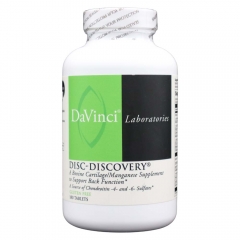

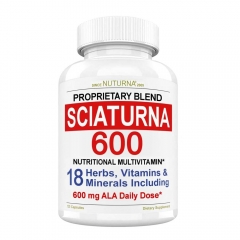
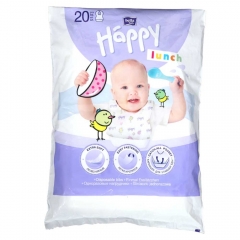

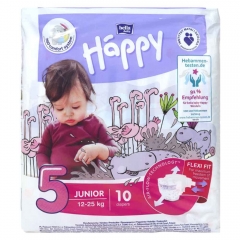



 KHUYẾN MÃI LỚN
KHUYẾN MÃI LỚN Hỗ Trợ Xương Khớp
Hỗ Trợ Xương Khớp Bổ Não & Tăng cường Trí Nhớ
Bổ Não & Tăng cường Trí Nhớ Bổ Sung Collagen & Làm Đẹp
Bổ Sung Collagen & Làm Đẹp Bổ Thận, Mát Gan & Giải Độc
Bổ Thận, Mát Gan & Giải Độc Chăm Sóc Sức khỏe Nam Giới
Chăm Sóc Sức khỏe Nam Giới Chăm Sóc Sức khỏe Nữ Giới
Chăm Sóc Sức khỏe Nữ Giới Chăm sóc Sức khỏe Trẻ Em
Chăm sóc Sức khỏe Trẻ Em Thực Phẩm Giảm Cân, Ăn Kiêng
Thực Phẩm Giảm Cân, Ăn Kiêng Bổ Sung Vitamin & Khoáng Chất
Bổ Sung Vitamin & Khoáng Chất Bổ Tim Mạch, Huyết Áp & Mỡ Máu
Bổ Tim Mạch, Huyết Áp & Mỡ Máu Bổ Mắt & Tăng cường Thị lực
Bổ Mắt & Tăng cường Thị lực Điều Trị Tai Mũi Họng
Điều Trị Tai Mũi Họng Sức Khỏe Hệ Tiêu hóa
Sức Khỏe Hệ Tiêu hóa Chăm Sóc Răng Miệng
Chăm Sóc Răng Miệng Chống Oxy Hóa & Tảo Biển.
Chống Oxy Hóa & Tảo Biển.